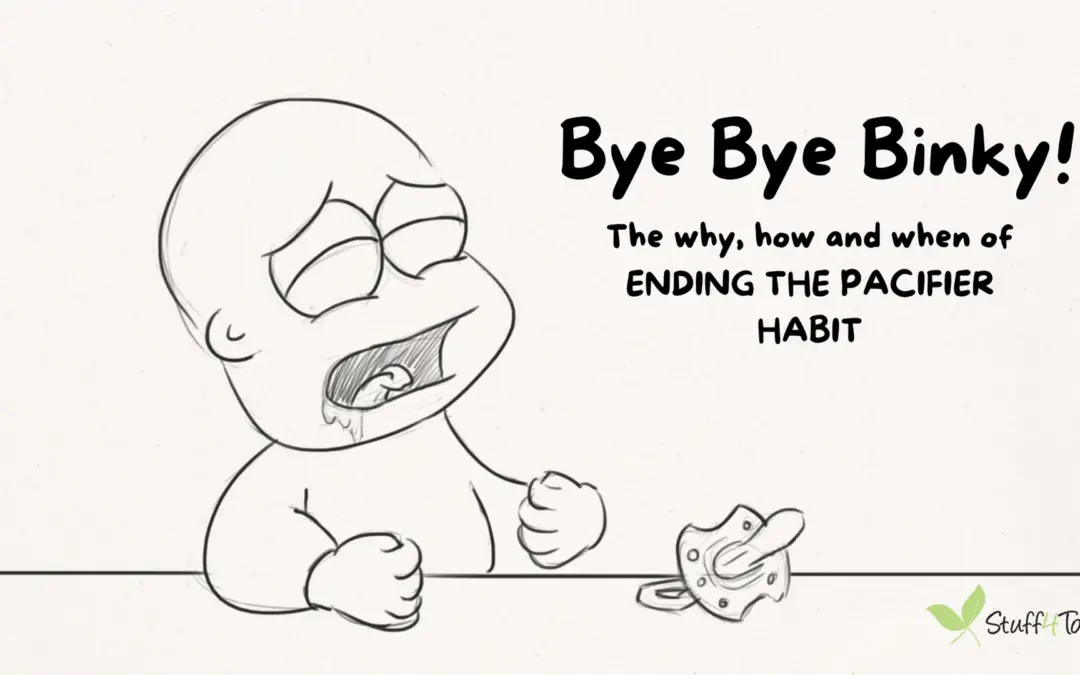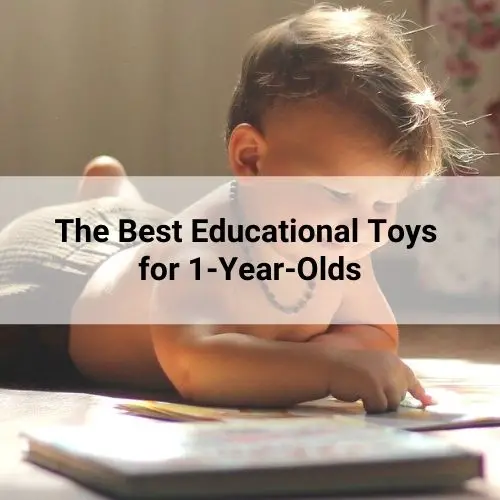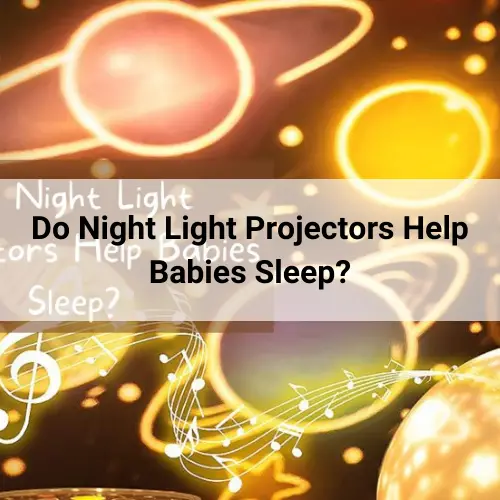Sometimes, babies can end up loving their pacifier as much as they love breastfeeding or feeding from a bottle. They are born with this primary reflex of sucking, and it often comforts them and helps them fall asleep. However, as much as they love their binky, there will come a time when they need to give it up.
Table of Contents
Pros of pacifier use
Pacifiers are best known for soothing a crying baby and putting them to sleep. Aside from this, here are some reasons why parents choose to give their baby a pacifier:
• It reduces the risk of Sudden Infant Death Syndrome (SIDS)
. The American Academy of Pediatrics recommend the use of pacifiers too soothe or reduce your baby’s cry because it greatly reduces the chance of SIDS. Don’t forget that pacifiers may be a choking hazard, therefore never attach it to their neck or crib.
• Helpful for moms with Postpartum Depression
Some studies show that mothers who have PPD are more likely to breastfeed their baby if their baby cries less often because of a binky. It gives them a little time to rest in between feedings, making motherhood less stressful.
• Distraction
Pacifiers are a great distraction, especially during vaccinations. It somehow lessens the pain and tones down your baby’s crying. It is also helpful during stressful situations for your baby, like during a checkup with the doctor or anything that makes them uncomfortable.
• Helps premature babies to thrive
Studies show that pacifier use amongst pre-term babies improve their ability to bottle feed and also decreases their stay in the hospital. It also improves the digestion of the babies when they suck on pacifier during feedings.
• Makes air travel smooth
Babies can ride airplanes for free. Why not plan a trip? Just make sure that a pacifier is with you during the trip as the pressure inside the plane can be irritating for your baby. The presence of the pacifier helps equalize the pressure during take-off, making the whole flight more comfortable for them.
• Prevents reflux
Pacifier use induces more saliva production. Saliva is a natural antacid hence, it prevents reflux of acid from the stomach.
Cons of pacifier use
As much as parents love pacifiers, there are still some cons that result from its use:
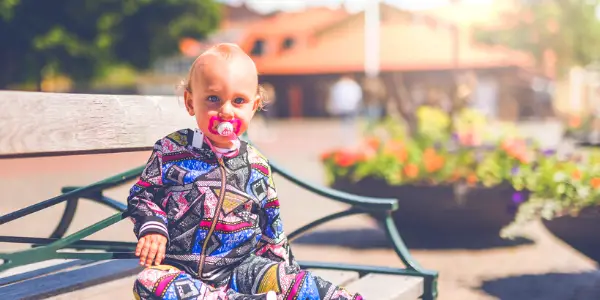
• Ear infections
Babies who use pacifiers are prone to having ear infections as during sucking, the pressure inside the ear changes, allowing the fluid from the middle ear to shift, creating a good environment where bacteria can thrive. Also, improper cleaning or use of the pacifier can also cause infection.
• Teeth problems
Prolonged use of pacifiers can damage your baby’s teeth. It can alter the shape of the teeth or even cause a cross bite or overbite thatmay even lead to speech delays.
• Breastfeeding problems
Introduction of pacifiers for a baby at an early stage may make them want to shift to bottle feeding early, instead of breastfeeding. It is advised to wait at least 3-4 weeks of age before you start giving your baby pacifiers.
• Dependency
Pacifiers can be almost addictive for your baby, especially when you give it to them to help fall asleep. Babies know when the pacifiers fall from their mouths, and will wake them and cause them to cry when they notice this. This can be quite stressful for you as it can result in crying spells at night.
Pacifier safety
Here are a few safety reminders that you need to keep in mind whenever you are giving your baby a pacifier:
1. Give your baby a pacifier when you are putting them to sleep but make sure that you remove it after to avoid choking.
2. Never attach a pacifier to the crib, on their clothing or use a strap to hold it. Long strings can cause strangulation.
3. Don’t use pacifiers that have removable parts, your baby might choke on them.
4. Make sure to regularly clean the pacifiers with soap and warm water as to prevent breeding bacteria breeding on them.
5. Replace it regularly. Once you see that the pacifier is worn out, buy a new one.
6. Never dip a pacifier in honey or sugar as this can cause cavities on your baby’s developing teeth.
7. Make sure that your baby is not hungry when you offer a pacifier. It should not be used as an alternative for milk.
When to wean your baby
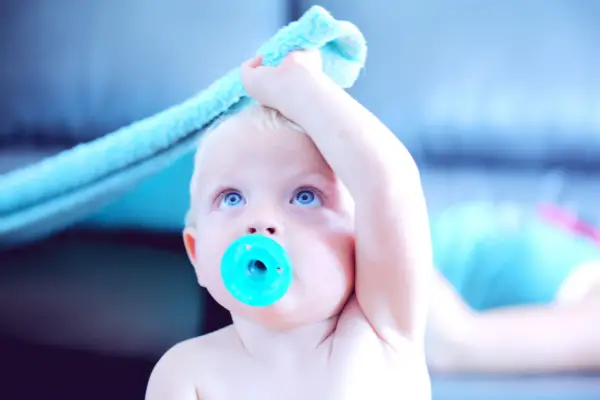
Some signs can signify that it’s already time to start weaning your baby. Take a look and see if your baby has any these signs. Maybe it’s time to reconsider pacifier use:
• When your baby has frequent earache or recurrent ear infections.
• When your baby has speech impairments at the age of 2.
• When your baby chews the pacifier or spits it out.
• When your baby is old enough to put himself to sleep.
Weaning process
There are ways to wean your baby from their favorite binky, and some of it is unpleasant and might make it an uncomfortable experience for your baby. We identified 2 ways that can help in this process: The cold turkey method and the gradual process method.
Cold Turkey method
In this method, you have to make sure that everyone is aware of the new change for your baby. Your babysitter, husband or anyone who takes care of your little one should know this to avoid confusion. Doing this can make things easier. Next, make sure that all binkies are hidden and can no longer be found. You can make a story such as a “pacifier fairy” (like the tooth fairy) that goes around at night and takes binkies away, and in return, they get a new toy.
It is also helpful if your baby has had bad experiences with their pacifiers. Try dipping them in lemon juice, olive oil, or anything that has an awful taste. Doing this will make your baby relate the bad taste to the pacifier, which will make them stop using it. Some parents are also successful with cutting the tip of the pacifier and saying that it is broken, cannot be fixed and should be thrown in the trash. This lessens the times they use a pacifier in the day.
Gradual process method
If you are quite hesitant to suddenly remove the use of pacifier from your baby, you can use this alternative method.
As the name itself implies, you take the whole experience of weaning slowly but surely. Make it a fun and a positive experience by telling them that pacifier use is not done by big kids anymore. Toddlers, once they learn how to talk and reason, want to age immediately as they want to do things that adults can do. Saying this to them will make them want to stop pacifier use. Praising them with this achievement will also impose positive reinforcement that will encourage them to not use the pacifier anymore.
It is also helpful if you give the pacifiers during stressful situations like vaccinations, entering day care for the first time or moving to a new place, as it may provide them comfort, but only for a limited time. Try to make it a game! A treasure hunt is an ideal one as it allows you to hide the pacifier and gives reason why your child can’t find it anymore. If your baby is still attached to their binky even after all these, try giving it a goodbye ceremony. It will make your child feel that they can’t use it anymore because the time has come for it to be free. Some parents tie the pacifier to a balloon while some just bury it in the backyard.
How to comfort your baby after weaning
Pacifier season is over, and your baby might still be looking for it. Here are some useful alternatives to make your baby forget about pacifiers, which can also help them make this transition more comfortable:
o Prepare a transitional object. It may be a small animal, a toy, pillow or even a blanket that will become their favorite item and their sleeping buddy.
Click here for this soft and cuddly giraffe.
o Provide other means of comfort such as stroking their hair, patting their back, use a white noise machine, rub their tummy, sing a song, talk soothingly and softly or give them a bath. Make it a routine for your baby to establish it in themselves that doing these things means they are going to sleep soon.
o Lastly, stand firm on your decision to stop giving binkies as it in the best interest of your baby.
Related Articles:

Astley Golosinda
My background is in the field of medicine and I have a Bachelors Degree in Nursing. My thesis in Nursing was also published on Journal of Gerontology
For the past 4 years, I continued my studies and dedicated my time to acquiring a Doctorate of Medicine. I was a working student all throughout my post-doctorate degree. I have clinical experience in the hospital both as a nurse and now as a medical student.
